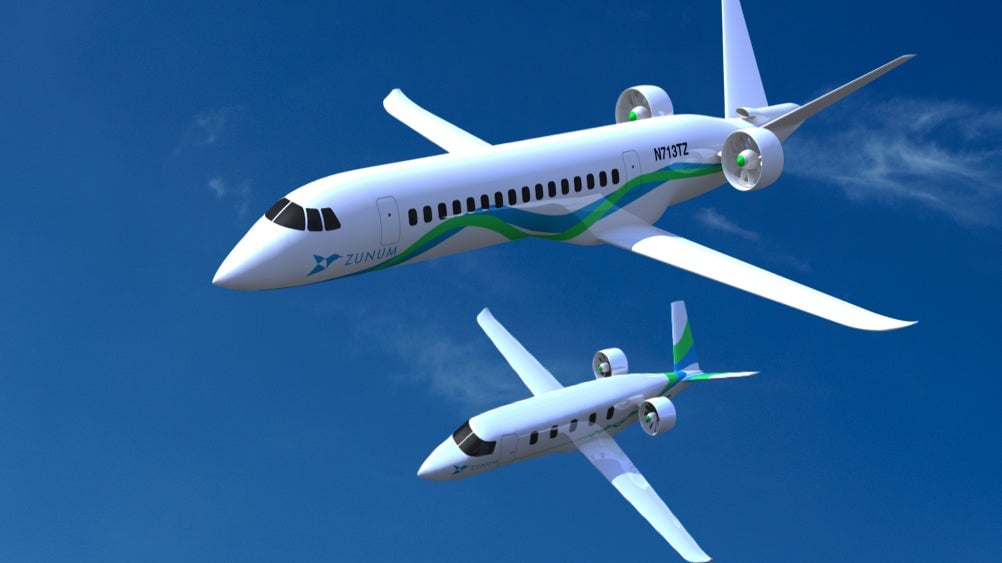“Tesla for the air”: JetBlue taps an electric airplane startup to make short-haul air travel cheaper
A small aerospace startup is trying to bring electricity-powered airplanes to the world’s skies, a technology it says will save time, money, the environment, and perhaps our hearing.


A small aerospace startup is trying to bring electricity-powered airplanes to the world’s skies, a technology it says will save time, money, the environment, and perhaps our hearing.
Zunum Aero, based in Kirkland, Washington announced Wednesday that it is developing a hybrid electric airplane with batteries stored in its wings. The company hopes to have its new planes in the skies by the early 2020s. The goal is to drive down the cost of short-haul flights with distances of up to 1,000 miles.
JetBlue Technology Ventures, a unit of the airline, said it is backing Zunum, along with Boeing. (JetBlue declined to disclose its stake or how much it paid for it.) It will be like “Tesla for the air,” Bonny Simi, president of JetBlue Technology Ventures, tells Quartz.
Ashish Kumar, a mechanical and aerospace engineer, founded Zunum in 2013. The company’s name is derived from “tzunuum,” a Mayan word for hummingbird. Kumar claims his company’s electric hybrid propulsion technology can drive down costs for airlines by 40-80%. It would also save passengers money by allowing airplanes to more cost-effectively fly in and out of smaller airports instead of requiring passengers to connect via a large airport in an airline hub city.
Frequent business travelers, or at least their corporate travel departments, know that short-haul journeys can quickly become pricey when they include one or more small airports. That’s because airlines carry fewer passengers to these destinations and have to charge more to cover the costs of operating a flight without as many passengers. For example, at current prices, a roundtrip ticket in early May between Mobile in southern Alabama and Hartsfield-Jackson Atlanta International Airport was recently on sale for $239 for the 660-mile trip. Meanwhile, a 1,780-mile roundtrip between New York’s Laguardia Airport and Atlanta costs $160.
Lowering the cost of flights could create a more affordable transportation option for those living in far-flung communities. This is important because US president Donald Trump last month proposed cutting government subsidies for rural airports, which could force some to close.
The Zunum planes could eventually transport up to 50 people, according to Kumar, who expects a first prototype to be ready in about two years.
Zunum isn’t the only company exploring battery-powered air travel. In July 2015, aircraft maker Airbus flew its fully electric E-Fan demonstrator aircraft over the English Channel. Still, many hurdles remain, such as proving that the concept is safe to government regulators. That’s a challenge facing other startups in the aviation business, such as those trying to revive commercial supersonic flight.
Getting the first electric planes ready for commercial flights won’t be easy as getting electric cars on the road. But perhaps they can eventually share the charging network.